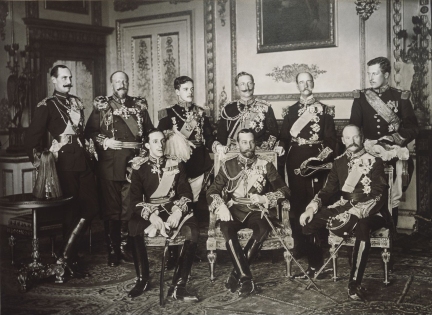This has been a splendid day of Parliamentary theatre. For those who don’t get their news through a twitter feed to the neural stem, the government has lost an absolutely critical vote on how the Brexit vote will work. Dominic Grieve, head of the Tory remain wing, successfully tabled an amendment that means Parliament can effectively amend the government’s Brexit proposals.
This was a triumph of lawyerly proceduralism, which Grieve had planned out a long, long time ago. True Brexit nerds might remember there was talk of a big Remainer rebellion in Tory ranks, and the concession Grieve extracted from the government was a promise that it would advise the speaker that the meaningful vote could be in neutral terms. That seemed like some bizarre arcana back then, and was written off as a big climb-down. As of today, it looks like a grandmaster’s checkmate.
This fundamentally changes the logic of Brexit. It used to run that
- Government proposes a deal
- If that deal doesn’t work, the UK crashes out of the EU thanks to article 50, unless the Government comes up with a new plan.
- The Government also notionally has the right to revoke article 50.
The dominance of 1) meant this appealed to few people: not the remainers who see it as a worse deal than we currently have; not the leavers who want the freedom of a true Brexit. But it meant that all paths to a Brexit end-state went through the Executive.
What the Grieve amendment means is that the sequence now runs:
- Government proposes a deal
- If that deal doesn’t work, parliament intervenes. Based on current numbers, that almost certainly looks like some kind of closer relationship than the Government’s deal, possibly revolving around Labour’s preferred option of a link with the Customs Union.
- The Government also notionally has the right to revoke article 50.
So now Parliament, which as a bloc is solidly against a hard Brexit, has a defining say.
Perhaps the most significant aspect of that shift is what has slipped out of the sequence – threat of a no-deal. Which is something of a problem for your hardcore Brexiteer: the question that no one can answer is how you can find a path through the coming melee to your preferred outcome.
It is not impossible that the government could pass its deal. That remains plan A for No.10.
I can see how you get to Norway/EEA: government loses its deal; there is a wider consensus that we need to honour the referendum result somehow and that Norway is the only option off the shelf that works.
I can see how we get to a second referendum: there’s no consensus in parliament and the idea of a further vote is the only way to break the deadlock.
But how can you get to no-deal? You could notionally talk out the process until article 50 kicks in. That doesn’t appear workable given the composition of Parliament just now. You definitely can’t get the votes for Parliament to adopt it as the preferred route.
I also don’t think an election changes the fundamentals of this position. At such short notice, all you end up with are more Labour MPs who push for compromise: the alternative idea that the Tories can get a load of hard-line Brexit votes while the party itself is fundamentally divided simply doesn’t add up.
So, as a hard Brexiteer, what are your options?
- Back the government’s deal. But I think people hate that so much that there is just no way it can be done. If this is vassalage, joining the government is basically unconditional surrender. The psychology isn’t there for this to happen right now.
- Accept Norway as a halfway house. The original Gove option, which may well become the fallback of the sensible Brexiteers once the government’s deal has fallen. The idea is that you can then work your way to full Brexit thereafter. But it still carries the drawbacks – years of rule-taking, hefty contributions to EU budgets, free movement of people, supremacy of the ECJ et al.
- A second referendum. This always looked like the worst option for Brexiteers, because it puts back on the table the idea that we could stay in the EU. But it also provides a route around Parliament’s views that could lead you to the true freedom you’ve always wanted. Of the three viable options, this is the only one that gets you what you want. And, though most Remainers tend to forget this, the Brexiteers have a 100% success rate on winning referenda.
Call this no more than a hunch right now, but I think we’re about to see Brexit resolved through the ultimate unholy alliance. Hardliners on both sides, each appalled by compromise in the middle, will work together to drag us back to the ballot box. This time, however, we’d be voting for keeps.

 To deliver Chequers, Theresa May and her team had to get through three things. The first was Cabinet after the summer recess – successful, harrumphing notwithstanding. The third was going to be party conference, when May and Raab would need to sell the deal to a hostile membership. But the second one was the hardest – selling the plan to the rest of the EU at Salzburg – and it has in no way gone to plan.
To deliver Chequers, Theresa May and her team had to get through three things. The first was Cabinet after the summer recess – successful, harrumphing notwithstanding. The third was going to be party conference, when May and Raab would need to sell the deal to a hostile membership. But the second one was the hardest – selling the plan to the rest of the EU at Salzburg – and it has in no way gone to plan. There’s a moment common to many great westerns. Two gunslingers are facing off against one another. They stand at twenty paces. The moment comes, they reach for their six-shooters and bang! There’s a moment’s pause. Then, slowly, one of the two topples to the ground.
There’s a moment common to many great westerns. Two gunslingers are facing off against one another. They stand at twenty paces. The moment comes, they reach for their six-shooters and bang! There’s a moment’s pause. Then, slowly, one of the two topples to the ground. Fast forward to 2018, and the parallel is striking. This time, we have the nation euphoric about having finally, finally won a penalty shootout, and a time in politics when the future is very, very uncertain. I can see someone else speculating in thirty years, what might have happened had Kane been sent on during England-Belgium, if he’d managed to win the match. England end up elsewhere in the draw, and find themselves knocked out in a surprise loss to Japan. Rather than ending the week with an optimistic sense that the best can always happen, we could have finished with a redoubled sense that England’s glories ended before we were born. And that difference could honestly change the future of the UK.
Fast forward to 2018, and the parallel is striking. This time, we have the nation euphoric about having finally, finally won a penalty shootout, and a time in politics when the future is very, very uncertain. I can see someone else speculating in thirty years, what might have happened had Kane been sent on during England-Belgium, if he’d managed to win the match. England end up elsewhere in the draw, and find themselves knocked out in a surprise loss to Japan. Rather than ending the week with an optimistic sense that the best can always happen, we could have finished with a redoubled sense that England’s glories ended before we were born. And that difference could honestly change the future of the UK.


 One of the most striking things about the British government is its aura of politeness. That may sound like an odd claim to make, especially if you are a fan of the Thick of It. You might suggest that the top echelons of government are filled by a bunch of sweary, terrified bullshit-artists who try to cover their own powerlessness with sheer aggression, and I might or might not disagree. Civil servants pass round tales of where the Blackberries get thrown.
One of the most striking things about the British government is its aura of politeness. That may sound like an odd claim to make, especially if you are a fan of the Thick of It. You might suggest that the top echelons of government are filled by a bunch of sweary, terrified bullshit-artists who try to cover their own powerlessness with sheer aggression, and I might or might not disagree. Civil servants pass round tales of where the Blackberries get thrown.
 We’d been expecting a reshuffle for a while. Critics of the government were preparing to say that it as rearranging the deckchairs on the Titanic. But after yesterday, it seems that the government has lost the ability even to move the deckchairs.
We’d been expecting a reshuffle for a while. Critics of the government were preparing to say that it as rearranging the deckchairs on the Titanic. But after yesterday, it seems that the government has lost the ability even to move the deckchairs.
